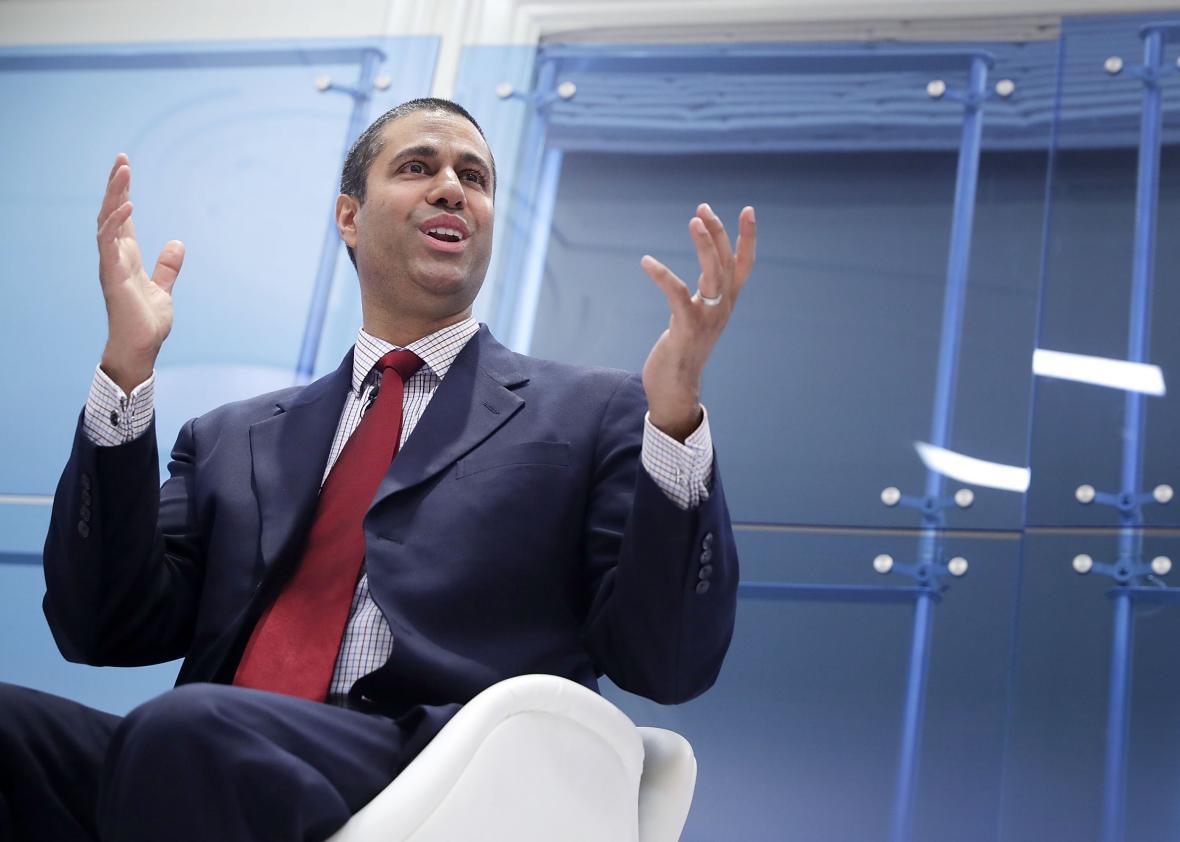Get ready to say goodbye to the open internet. Today, the chairman of the Federal Communications Commission shared a draft of the rules that will undo the agency’s network neutrality policy that was passed in 2015. And in a few weeks, at the next December public meeting, the FCC will almost certainly vote to put the final nail in the coffin of the hard-won regulations that prevent internet providers, like Comcast and AT&T, from charging websites a fee to reach users at faster speeds.
The new proposal doesn’t just undo the old rules. It also shifts more enforcement responsibility to the Federal Trade Commission, an agency that’s equipped to sue companies that don’t keep promises made to consumers. But if internet providers don’t promise to not throttle speeds to different websites for a fee, they’ll likely be free to do so.
Since FCC Chairman Ajit Pai first released his proposal in May to undo the net neutrality rules, an unprecedented 22 million comments from the public have poured into the FCC, but the process has been mired by rather serious irregularities. Comments posted by dead people and bots were found, and the online submission system even suffered a suspicious cyberattack, which is currently being investigated by the Government Accountability Office.
But none of that appears to be enough to deter Pai, who wrote in a Wall Street Journal op-ed Tuesday that his inspiration for gutting the rules comes from the desire to spur more investment in broadband infrastructure. He cites research that claims capital expenditure from internet providers has decreased 5.6 percent since 2014. But there are all kinds of reasons a business may decide to reduce spending or shift priorities, such as the contentious federal election season, pending mergers, and extreme weather.
And besides, Comcast, Verizon, and AT&T have all said on investor calls that, since the recent net neutrality rules were issued, they’ve been investing more in network infrastructure. Pai may be hearing that there’s been a downward trend in investment following the network neutrality rules, but internet service provider investors may be getting a different story.
So Pai’s rationale is easy to poke holes in. It’s true that without net neutrality regulations, internet companies stand to make a lot more money, some of which very well could go into network improvement. But even if internet providers make more money and invest it in stronger networks, it’s the public that stands to lose the most. That’s because without network neutrality, ISPs won’t be legally prevented from creating a tiered internet where some sites will load faster than others. Comcast, for example, will be able to operate a two-way toll, collecting fees from both subscribers and websites trying to reach subscribers at faster speeds. And let’s face it: When one website loads slower than another, the immediate reaction is to navigate away to the faster loading page. The companies that are already successful and can afford the fast-lane prices will likely get to set the fee, giving them an even bigger advantage against a small startup or struggling local news operation.
The majority of the FCC is expected to vote to proceed with Chairman Pai’s proposal while two commissioners are expected to vote against it. In an interview with Slate last week, one of those commissioners, Jessica Rosenworcel, called on the FCC to conduct public hearings across the country, since the public comment process has had numerous serious snafus since Pai’s proposal released, she says.
Pai says he plans to release the full text of the new net neutrality proposal Wednesday. While it may seem like a dead-end road at this point, there are still a few alarms to sound to try to get the FCC to pull the brakes. For one, Americans can contact their elected representatives and urge them to write to the FCC or take action to protect network neutrality with strong legislation. Another would be to continue to comment to the FCC—even though the draft of the rule is out, the commission does continue to accept public comments.
Still, unless something seriously unforeseen happens to stall the process, by this time next year, the internet could be a very different place.
